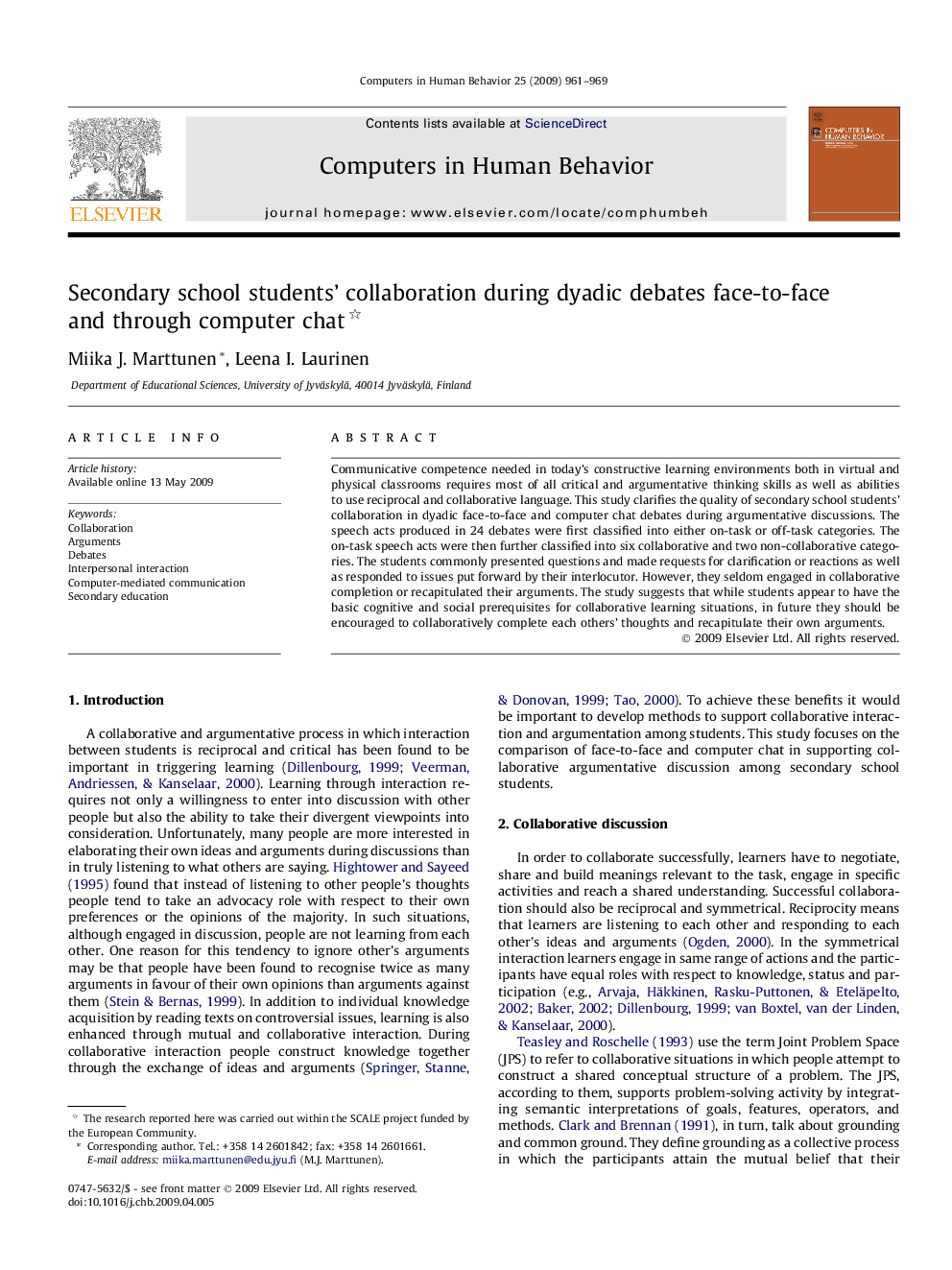| Article ID | Journal | Published Year | Pages | File Type |
|---|---|---|---|---|
| 352076 | Computers in Human Behavior | 2009 | 9 Pages |
Communicative competence needed in today’s constructive learning environments both in virtual and physical classrooms requires most of all critical and argumentative thinking skills as well as abilities to use reciprocal and collaborative language. This study clarifies the quality of secondary school students’ collaboration in dyadic face-to-face and computer chat debates during argumentative discussions. The speech acts produced in 24 debates were first classified into either on-task or off-task categories. The on-task speech acts were then further classified into six collaborative and two non-collaborative categories. The students commonly presented questions and made requests for clarification or reactions as well as responded to issues put forward by their interlocutor. However, they seldom engaged in collaborative completion or recapitulated their arguments. The study suggests that while students appear to have the basic cognitive and social prerequisites for collaborative learning situations, in future they should be encouraged to collaboratively complete each others’ thoughts and recapitulate their own arguments.
